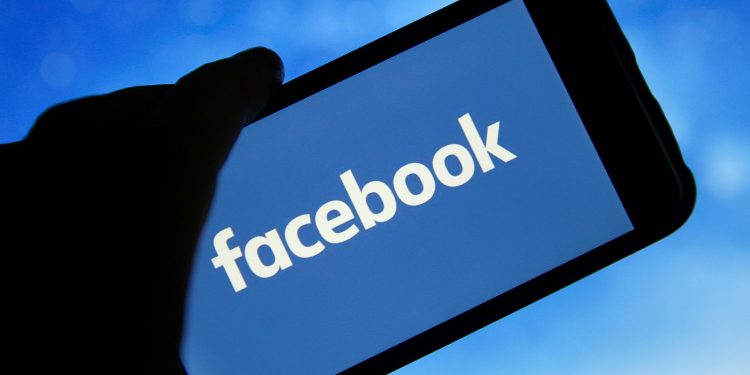Our country India has more than 300 million active Facebook subscribers. Further, more than 400 million people have made WhatsApp an essential part of their lifestyle. Instagram is also slowly gaining popularity where people entertain their acquaintances and followers by putting up their exciting and attractive pictures and videos. Today, most countrymen open their WhatsApp and Facebook as the first thing after waking up in the morning. Did they miss some important messages? Several people start sending good morning messages causing high bandwidth consumption for Internet Service Providers (ISP). These apps are used frequently throughout the day for personal, professional, and entertainment purposes. What’s app has become a superior alternative for calls, chatting, and sharing documents. We speak to acquaintances in foreign without paying a single penny.
However, on Monday, October 4, all Facebook apps and services suddenly stopped working. The outage occurred around 9:30 p.m. Indian time, and all services were restored by 3:20 a.m. Although outage occurred after regular business hours and was resumed before business hours in India. Still, it impacted users who could not chat and talk due to the unavailability of services. Furthermore, in continents such as Europe, the USA, and Australia, the outage occurred during business hours, so consumers in those geographies suffered more.
Many small and medium businesses across the globe use different features of Facebook to operate their business effectively. Among facebook’s most used features, call-to-action pages, Facebook pages, order booking, event apps, Facebook pixels, Facebook analytics, Facebook beacons, etc., are prominent. Small businesses use Facebook’s call-to-action pages instead of creating their own website. Creating, handling, and updating the Facebook page is relatively easy and cheaper. Nowadays, the practice of broadcasting events, conversations, teaching, etc., live on Facebook and Instagram is increasing. Due to all these reasons, many companies, businesses, and people have become dependent on Facebook. In such a situation, the unavailability of services without advance notice raises tough questions about Facebook’s business credentials. Its direct impact was apparently visible on Facebook’s share price, and Mark Zuckerberg lost $6 billion from his net worth in a few hours.
Stunned by the sudden outage, Facebook immediately issued a press release clarifying that it was not a cyberattack and occurred due to a faulty configuration change. This problem’s leading cause was the error in the Border Gateway Protocol (BGP). Actually, BGP works as the roadmap to reach a particular website. A recent update caused an error in the system. Consequently, the company’s server address disappeared from the Internet. The Internet is a network of computers worldwide with countless computers, servers, and data centers connected. Our computers and phones access data from data warehouses located far away with the help of routers. The routers help send requests for information to these data centers, which they get through the BGP. Facebook’s problem arose because the faulty configuration change led to routers straying from facebook’s data center. So the routers felt that the data center was not present at all.
The ideal solution to the problem is to inform the address of data centers to the routers, although, in the case of Facebook, it appears that their staff was using the same faulty network. Hence they were not able to communicate internally. Remote access to the data center was also not possible due to the integrated network. The second possible solution was to physically go to the data center, refresh the entire system, and fix the routers. However, according to a report from Reddit, which is now deleted, access card authentication could not happen as it takes place through the same network. Hence staff could not enter to data center quickly, and the whole correction process was stretched for hours. This was the most significant outage in a leading organization in the near past. Moreover, Facebook keeps all its data on the same centralized server, which disrupted other Facebook businesses like What’s app, Instagram, etc.
The service outage of a globally operating company like Facebook is a big issue for IT businesses. Better procedures can help in preventing such unwanted incidents. The evolution of DevOps tools has automated the entire upgrade and configuration process. However, it is complicated to predict such failures due to process automation, especially when it relates to the basic infrastructure of networking. To overcome such a significant deadlock, big companies should always keep alternative backup arrangements. Further, this outage notifies and approves that more prominent organizations should use different and multiple networks for their internal, external, and end consumers. Also, using separate networks and infrastructure for various ventures of the same group can prevent the widespread outage of the entire group like it happened to Facebook.
Coincidently, the outage occurred when former Facebook employee Francis Hogan was about to talk about Facebook’s unethical business practices at the US Congress. This incident also warns consumers to not depend on a single service provider. Keep alternative arrangements handy to run business and services smoothly. You can switch to other services immediately in case of such outages, only if you have a backup plan ready. Keep backing up your essential information and contacts secure at a secure location like your PC and reliable cloud storage. We can avoid the adverse effects of unexpected breakouts like Facebook outages using basic and more reliable features like email and text.

Author – Prabhat Sinha, IT Business expert and Amazon Bestseller Author
Email: kprabhatsinha@gmail.com










Discussion about this post